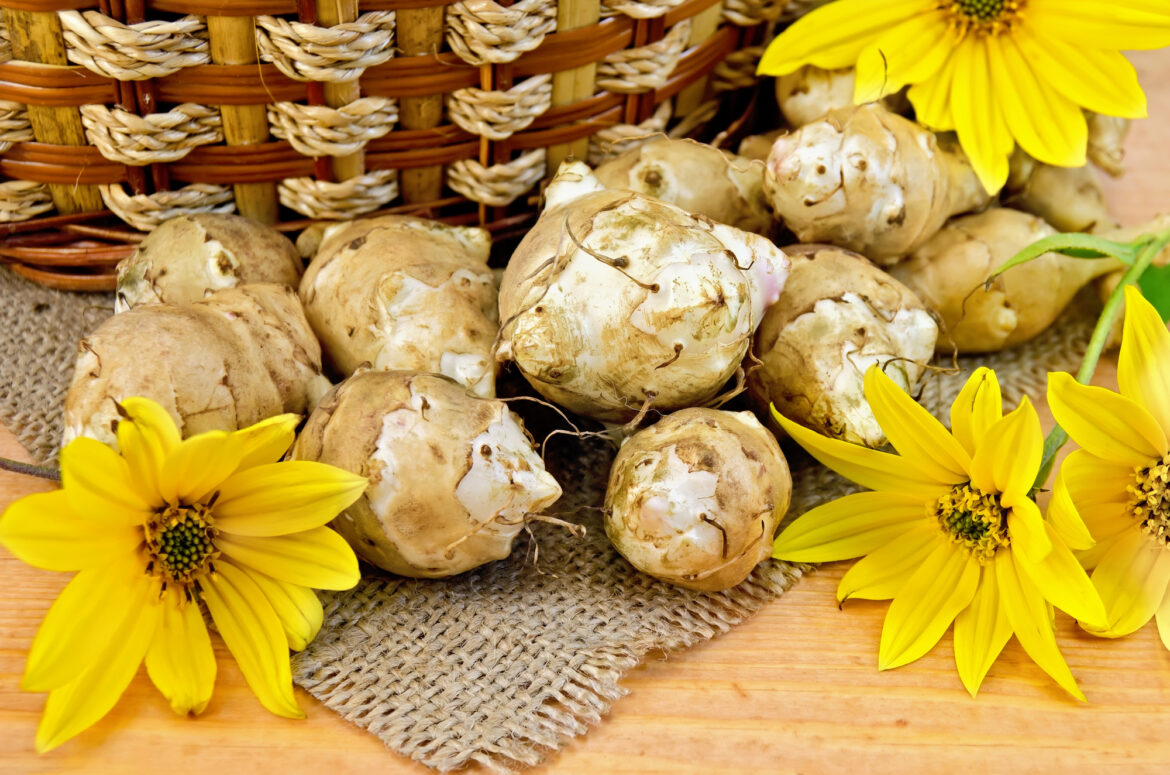The basics of Jerusalem artichokes
Jerusalem artichokes can have many benefits including health, beauty, and fitness. While some people may research to find more information on its benefits, some may also look for cooking techniques or cultivation methods. Despite the numerous benefits and uses of Jerusalem artichokes, we were disappointed to find that most websites only provide a brief introduction on how to eat them or their nutritional value, with no in-depth explanation. As a result, we decided to create a website dedicated to Jerusalem artichokes for those seeking a comprehensive information page, including their benefits and drawbacks, to share all about Jerusalem artichokes.
Increase in popularity
After they were highlighted in a TV program, Jerusalem artichokes have been featured countless times in the media. Many focus on the effects of Jerusalem artichokes on the neutral fats and blood sugar levels bringing significant attention to its relationship with health benefits.
Although Jerusalem artichokes are now considered a highly beneficial food, especially for those concerned about their health, they were not well known until recently. During World War II, Jerusalem artichokes were commonly used as emergency rations and were a very familiar food source among Japanese people. However, as Japan became wealthier with the wars end, other foods became more popular and Jerusalem artichokes were gradually forgotten.
While Jerusalem artichokes remained relatively unknown and unpopular for several decades, they continued to be consumed in certain regions of Japan. This changed after a TV program took notice of the exceptional health of the people in these regions and ran an investigation to figure out what exactly was the ingredient to their well-being. The study revealed that the locals frequently incorporated Jerusalem artichokes into their diet, which sparked a renewed interest in this food.
Reason for their popularity
Jerusalem artichokes have gained popularity because of their high levels of inulin. In fact, they contain significantly more inulin than other foods that are high in these dietary fibers. As a result, Jerusalem artichokes are an excellent source for effectively intaking inulin.
The inulin found in Jerusalem artichokes are unique because it can transform into a gel-like substance in your intestines to help regulate blood sugar levels after meals. As a result, they have attracted the attention of many people who are mindful of their blood glucose levels. Moreover, inulin found in Jerusalem artichokes are not absorbed by the body and is instead directly excreted, preventing the intake of extra calories. The fact that Jerusalem artichokes are low in carbohydrates makes another plus about this food.
There are several more benefits to consuming Jerusalem artichokes. With this website, we will introduce the relationship between inulin and other components found in Jerusalem artichokes and how they affect your health.
What are Jerusalem Artichokes?
Jerusalem artichoke is a plant in the sunflower family (Asteraceae) and grows flowers like sunflowers and chrysanthemums. The tuberous root is the edible part of the plant and grows large. Jerusalem artichoke plants can grow up to 2-3 meters in height, with leaves spreading up to 50-1m. They are typically planted between February and April and after they bloom around September, they are harvested from November to March.
Jerusalem artichokes originate from eastern Canada and were used as a food source by the indigenous Topi Nambour tribe. (This why they are also called topinambur.) When Europeans came across this common food source in the tribe, they brought it back to their home countries which led to full-scale cultivation in Europe from the 1600s. It was not until the late 1800s that the plant was first introduced in Japan but the research on cultivation methods progressed.
Since Jerusalem artichokes originate in cold regions, it is not suitable for cultivation in tropical regions, and they thrive most in areas with average annual temperatures below 17 degrees Celsius. This means that this plant can grow in most areas of Japan. In addition, because Jerusalem artichokes have a strong vitality and are considered a highly invasive plant, they have become naturalized in various parts of Japan and are said to have impacted the ecosystem in some ways. Although not widely known, Jerusalem artichokes are rapidly gaining popularity as a health food in Japan and are considered an excellent source of nutrition during the winter in Europe.
Jerusalem Artichoke Supplements
Although Jerusalem artichokes are highly popular among those who take care of their bodies, there is a big disadvantage making it difficult to eat them throughout the year, their harvest season. Despite the many advantages, you won’t be able to take in the benefits to the fullest if you can’t consume them regularly. In addition, preparing and cooking raw Jerusalem artichokes for every meal is very difficult and time-consuming. This is where supplements come in. With supplements, you can take them anytime and anywhere making it very convenient, so you can fully enjoy the benefits of Jerusalem artichokes.
However, not all supplements made from Jerusalem artichokes are good. It is important to consider the place of origin, pesticide usage, the amount included, and the type of supplement whether it’s in powder or tablet form. In addition, since tablets are a type of processed food, it is also important to consider the additives in the tablet. Because there are many types of supplements, in this Jerusalem artichoke book, we will also introduce how to choose the best type for you.

